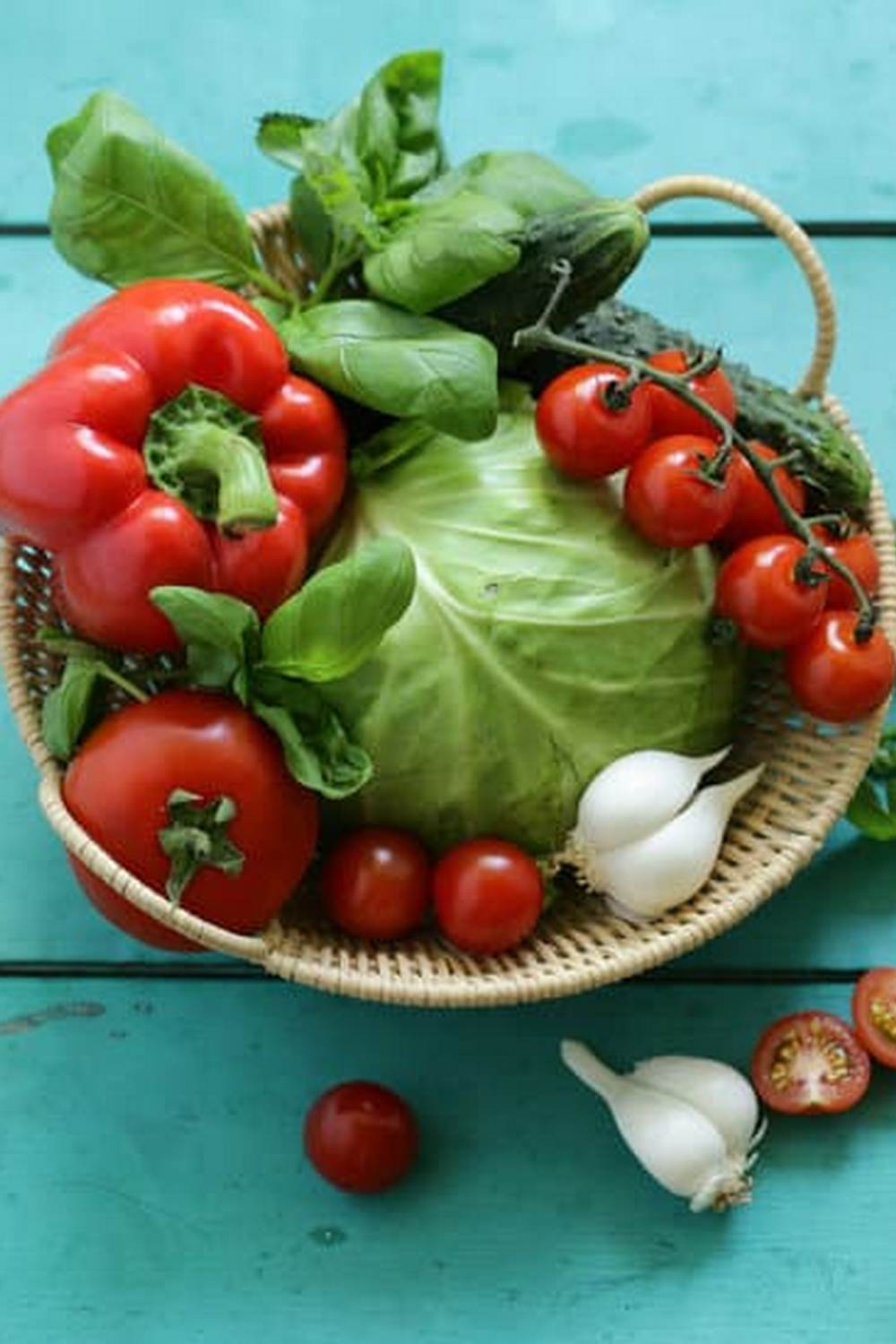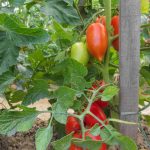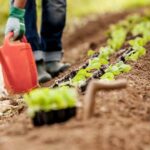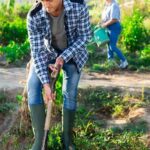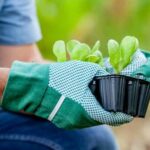Louisiana gardeners have a unique opportunity to cultivate a diverse range of vegetables in their climate. One key aspect to kickstarting your gardening journey is choosing the right vegetable seeds for Louisiana’s specific conditions. With the abundance of sunshine and moisture in this region, there are numerous options for successful vegetable cultivation.
Louisiana’s warm and humid climate provides an ideal environment for growing a wide variety of vegetables. From traditional staples like tomatoes, peppers, and squash to more exotic options like okra, eggplant, and sweet potatoes, there is no shortage of choices for Louisiana gardeners. By selecting the appropriate vegetable seeds tailored to this region, you can ensure a bountiful harvest throughout the growing season.
Whether you are an experienced gardener or just starting out, understanding the nuances of vegetable gardening in Louisiana is crucial for success. From preparing your garden beds for planting to dealing with common pests and diseases that affect crops in this area, this article will provide valuable insights and tips to help you maximize your harvest of fresh, homegrown vegetables. Stay tuned to learn everything you need to know about vegetable seeds for Louisiana gardeners.
Best Vegetables to Grow in Louisiana’s Climate
Louisiana’s unique climate provides a perfect opportunity for gardeners to grow a wide variety of vegetables throughout the year. When it comes to selecting the best vegetables to grow in Louisiana’s climate, there are plenty of options to choose from. Tomatoes are a popular choice among Louisiana gardeners due to their versatility and ability to thrive in warm weather.
Bell peppers are also well-suited for Louisiana’s climate, providing a colorful addition to any garden. Additionally, okra is a staple in many Louisiana gardens, as it flourishes in the hot and humid conditions.
Leafy Greens
Leafy greens such as collard greens, kale, and Swiss chard are excellent choices for Louisiana gardeners looking to add some nutritious options to their harvest. These vegetables not only tolerate the heat but also provide a rich source of vitamins and minerals. Spinach is another leafy green that can be grown successfully in Louisiana’s climate, especially if planted during the cooler months.
Root Vegetables
Root vegetables like carrots, radishes, and beets thrive in Louisiana’s well-drained soil and sunny weather. Carrots are particularly popular among home gardeners due to their versatility in cooking and snacking. Radishes are quick-growing vegetables that can be sown multiple times throughout the growing season for continuous harvest. Beets add vibrant colors and earthy flavors to recipes, making them a favorite among many gardeners.
Herbs
Herbs such as basil, oregano, and thyme not only enhance the flavor of dishes but also add beauty and fragrance to the garden. These herbs do well in Louisiana’s warm climate and can be grown both indoors and outdoors. Mint is another herb that thrives in Louisiana’s conditions but should be planted in containers or restricted areas due to its invasive nature. Incorporating these herbs into your vegetable garden can attract beneficial insects while keeping pests at bay.
Where to Purchase Vegetable Seeds for Louisiana Gardeners
Louisiana gardeners have a wide array of options when it comes to purchasing vegetable seeds for their gardens. Whether you prefer to shop in-store or online, there are several reputable sources that cater specifically to the needs of those gardening in Louisiana’s unique climate.
Here are some top places where you can find high-quality vegetable seeds for your Louisiana garden:
- Local Garden Centers: Visit your nearest garden center or nursery to find a selection of vegetable seeds specifically curated for Louisiana’s growing conditions.
- Online Seed Retailers: Websites such as Southern Exposure Seed Exchange and Baker Creek Heirloom Seeds offer a variety of vegetable seeds suited for Southern gardens.
- Seed Exchanges and Local Farmer’s Markets: Connect with other local gardeners through seed exchanges or visit farmer’s markets where you may find heirloom and locally adapted vegetable seeds.
When choosing where to purchase your vegetable seeds, consider factors such as seed quality, variety selection, and whether the seeds are suited for the climate and soil conditions in Louisiana. By sourcing your seeds from reliable sources, you can ensure a successful and bountiful harvest in your Louisiana garden.
Remember, selecting the right vegetable seeds is crucial for achieving a successful garden in Louisiana. Take time to research different varieties that thrive in the state’s climate and soil conditions before making your purchase. With a little bit of preparation and the right choice of vegetable seeds, you’ll be on your way to enjoying delicious homegrown produce straight from your garden.
Tips for Starting Vegetable Seeds Indoors
Starting vegetable seeds indoors is a great way for Louisiana gardeners to get a head start on their growing season and ensure a successful harvest. To begin, it’s important to choose the right seeds for your region. Be sure to select vegetable seeds that are well-suited to Louisiana’s climate and growing conditions. Some popular options include tomatoes, peppers, cucumbers, and squash.
Setting Up Your Indoor Seed Starting Station
To start your vegetable seeds indoors, you’ll need a dedicated space with plenty of natural light or grow lights. Make sure your seed starting station is located in a warm area with good air circulation. Use seed starting trays or containers filled with a quality seed starting mix to plant your seeds. Keep the soil consistently moist but not waterlogged.
Timing and Temperature Considerations
When starting vegetable seeds indoors in Louisiana, timing is crucial. Consult a planting calendar specific to your region to determine the best time to start each type of vegetable seed. Additionally, make sure to maintain the proper temperature for germination. Most vegetable seeds require temperatures between 70-80 degrees Fahrenheit to sprout successfully.
Caring for Seedlings
Once your seeds have sprouted, continue to provide them with adequate light, water, and nutrients. As the seedlings grow, be sure to thin them out if they become overcrowded in their containers. Gradually acclimate your seedlings to outdoor conditions by exposing them to longer periods of sunlight before transplanting them into your garden once the danger of frost has passed.
By following these tips for starting vegetable seeds indoors in Louisiana, you’ll be well on your way to a bountiful harvest of homegrown produce. Enjoy the process of nurturing your plants from seedlings to mature vegetables ready for harvesting in your Louisiana garden.
How to Prepare Your Garden for Planting Vegetable Seeds in Louisiana
Louisiana’s diverse climate and rich soil make it an ideal location for growing a wide variety of vegetables. Before planting vegetable seeds in your Louisiana garden, it is essential to properly prepare the soil to ensure your plants have the best chance of thriving. Here are some essential steps to help you get your garden ready for planting:
- Test your soil: Conduct a soil test to determine its pH level and nutrient content. You can purchase DIY soil test kits at your local garden center or contact your county extension office for professional testing. Based on the results, you may need to amend the soil with organic matter or nutrients before planting.
- Clean up debris: Remove any weeds, rocks, or debris from the garden area. Clearing out old plant material will help prevent pests and diseases from spreading to your new crops.
- Till the soil: Use a tiller or a shovel to loosen the soil and break up any compaction. This will improve drainage, root penetration, and overall plant growth.
Properly preparing your garden’s soil sets a solid foundation for successful vegetable gardening in Louisiana. By following these steps, you can create an optimal growing environment for your vegetable seeds and ensure a bountiful harvest.
Remember that different vegetables have different needs when it comes to soil preparation, so be sure to research specific requirements for the crops you plan to grow. With proper planning and care, you can enjoy a flourishing garden full of fresh produce throughout the growing season with vegetable seeds for Louisiana gardeners.
Whether you’re new to gardening or have been tending to your plot for years, taking the time to prepare your garden properly can make all the difference in the success of your vegetable crops. So roll up your sleeves, get those hands dirty, and get ready to enjoy the fruits (and veggies) of your labor in no time.
Common Pests and Diseases to Watch Out for in Louisiana Gardens
Louisiana’s warm and humid climate provides excellent conditions for growing a wide variety of vegetables, but it also brings challenges in the form of pests and diseases that can affect your garden. Being aware of the common threats to your plants can help you take proactive measures to protect them and ensure a bountiful harvest.
One common pest that Louisiana gardeners often encounter is the tomato hornworm, a large green caterpillar that feeds on tomato plants. These voracious eaters can quickly defoliate your tomato plants if left unchecked. To manage this pest, hand-picking is an effective method. You can also introduce beneficial insects like ladybugs or parasitic wasps that prey on tomato hornworms.
Another common issue in Louisiana gardens is fungal diseases such as powdery mildew and leaf spot. Powdery mildew appears as white powdery patches on plant leaves, while leaf spot causes dark spots with yellow halos. To prevent fungal diseases, practice good garden hygiene by ensuring proper spacing between plants for air circulation, watering at the base of the plants to keep foliage dry, and applying fungicidal sprays as a preventive measure.
In addition to pests and diseases, Louisiana gardeners should be vigilant about invasive species like the Southern blight fungus, which attacks a wide range of vegetable crops. This aggressive pathogen thrives in warm and moist conditions, causing rotting of stems near the soil line. To prevent Southern blight, avoid overhead watering, rotate crops yearly, and remove any diseased plant material from your garden to limit its spread.
| Common Garden Threats | Preventive Measures |
|---|---|
| Tomato Hornworm | Hand-picking, introducing beneficial insects |
| Fungal Diseases (Powdery Mildew & Leaf Spot) | Good garden hygiene, proper watering techniques, fungicidal sprays |
| Southern Blight Fungus | Avoid overhead watering, crop rotation, removal of infected plant material |
Harvesting and Storing Vegetables Grown From Seeds in Louisiana
Once you have successfully grown your vegetables from seeds in your Louisiana garden, it’s important to know the best practices for harvesting and storing your bounty. Harvesting at the right time is crucial to ensure the vegetables are at their peak flavor and nutritional value.
Different vegetables have different indicators for when they are ready to be picked, so it’s essential to research each type you have planted. For example, tomatoes should be harvested when they are fully ripe and have a vibrant color, while root vegetables like carrots can be gently pulled out of the ground once they have reached a desirable size.
After harvesting your vegetables, proper storage is key to prolonging their freshness and flavor. Some vegetables, like cucumbers and peppers, can be enjoyed fresh but should be stored in the refrigerator to maintain crispness. Others, such as potatoes and onions, prefer a cool, dark place with good ventilation to prevent sprouting or rotting.
It is also important to handle your harvested vegetables with care to avoid bruising or damaging them during the storing process. By following these guidelines, you can enjoy the fruits of your labor long after harvest season has passed.
| Vegetable | Harvesting Time | Storage Tips |
|---|---|---|
| Tomatoes | When fully ripe and vibrant color | Store at room temperature away from direct sunlight |
| Carrots | Once they reach a desirable size | Trim tops 1-2 inches above carrot roots before refrigerating |
| Potatoes | When plants naturally die back or when tubers stop growing larger | Keep in cool, dark place with good ventilation to prevent sprouting |
As a Louisiana gardener who has invested time and effort into growing your own vegetables from seeds, it is rewarding to see the fruits of your labor come to fruition. By properly harvesting and storing your home-grown produce, you can savor the flavors of your garden throughout the seasons.
Additionally, sharing your surplus with friends and family allows you to spread joy and healthy eating habits within your community. Remember that each vegetable has its own unique requirements for harvesting and storage, so stay informed on best practices for each crop you cultivate in order to maximize their shelf life and taste.
Success Stories
Louisiana gardeners have been sharing their experiences with vegetable seeds, highlighting the successes they’ve had in cultivating a bountiful harvest. From growing juicy tomatoes to vibrant bell peppers, these stories showcase the passion and dedication that Louisiana gardeners have for their craft. With the right selection of vegetable seeds tailored to Louisiana’s unique climate, gardeners have been able to produce an abundance of fresh produce for their families and communities.
One gardener shared how starting their vegetable seeds indoors helped them get a head start on the growing season, allowing for healthier plants and an extended harvest period. Another gardener emphasized the importance of properly preparing the garden soil to provide essential nutrients for the vegetables to thrive. These insights from fellow Louisiana gardeners can serve as valuable tips for newcomers looking to embark on their own gardening journey.
In conclusion, the success stories from Louisiana gardeners highlight the rewards that come from growing vegetables from seeds in this region. The joy of harvesting your own homegrown produce and sharing it with loved ones is a gratifying experience that many gardeners cherish.
By choosing the right vegetable seeds for Louisiana’s climate, following expert advice on preparation and care, and learning from the experiences of seasoned gardeners, anyone can create a thriving vegetable garden in this vibrant state. So why not get started today and join the community of Louisiana gardeners who are reaping the benefits of cultivating their own fresh, nutritious vegetables?
Frequently Asked Questions
What Are the Best Garden Vegetables for Louisiana?
The best garden vegetables for Louisiana include okra, tomatoes, bell peppers, cucumbers, squash, and sweet potatoes. These vegetables thrive in the warm and humid climate of Louisiana, making them ideal choices for home gardens.
When Should I Plant My Garden in Louisiana?
In Louisiana, the best time to plant your garden is typically in early spring. This allows the vegetables to establish strong roots before the heat of summer arrives. Some vegetables can also be planted in the fall for a second growing season due to the milder temperatures.
What Is the Easiest Vegetable Seed to Grow?
One of the easiest vegetable seeds to grow is lettuce. Lettuce seeds are quick to germinate and do not require any special treatment before planting. Additionally, lettuce plants can grow in various conditions and are relatively low maintenance, making them an ideal choice for beginner gardeners.

If you’re looking to get into vegetable gardening, or are just looking for some tips on how to make your current garden better, then you’ve come to the right place! My name is Ethel and I have been gardening for years. In this blog, I’m going to share with you some of my best tips on how to create a successful vegetable garden.

